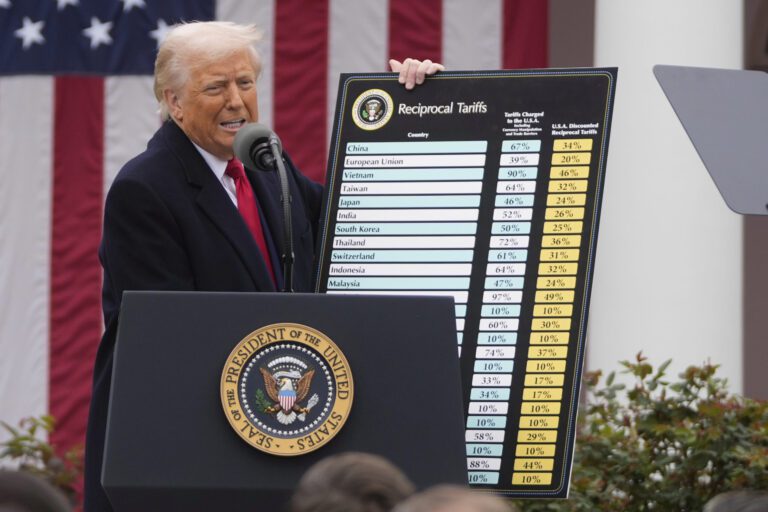Supreme Court Set to Decide on Trump’s Tariff Powers: A Pivotal Week Ahead
This week marks a significant moment in U.S. politics as the Supreme Court prepares to hear pivotal arguments concerning President Trump’s authority to impose tariffs. These deliberations could reshape his domestic and foreign policy strategies and define the scope of executive power over the economy.
The Importance of Tariffs in Trump’s Policies
President Trump has utilized tariffs as a tool to influence foreign nations and enforce trade practices he deems unfair. This approach, initiated on "Liberation Day" in April when he imposed across-the-board tariffs on multiple countries, has stirred both investor uncertainty and concerns among businesses.
Current Landscape of Tariffs:
- Global Impact: Tariffs have been employed against countries such as China, focusing on sectors like rare earth minerals and even extending to advertising from Ontario, Canada.
- Domestic Reactions: A mix of small businesses and Democratic-led states have filed lawsuits challenging the legality of these tariffs. Two significant rulings from the U.S. Court of International Trade and the U.S. Court of Appeals for the Federal Circuit have already declared certain import taxes illegal.
Supreme Court’s Upcoming Deliberations
The Supreme Court has agreed to hear arguments from both cases challenging Trump’s tariffs on Wednesday.
Key Arguments:
- Potential Consequences: Should the Court limit Trump’s tariff authority, he warned that “the country would be literally destroyed.” In previous statements, he emphasized the need for tariffs to secure financial strength against trade deficits and unfair practices.
- Legal Opinions: Various amicus briefs have been filed, including one from the Goldwater Institute and the John Locke Foundation, asserting that Trump’s tariff imposition contradicts the foundational principles intended by the Founding Fathers.
Opposition to Trump’s Tariff Powers
- Legal Challenges: Learning Resources, Inc. argues that Trump’s invocation of the International Emergency Economic Powers Act for tariffs is unprecedented and represents an overreach of executive power.
- Constitutional Concerns: Oregon’s Attorney General Dan Rayfield states, "The president does not have the Constitutional authority to do what he is doing right now."
Legislative Landscape and Public Opinion
Despite calls for tariff cancellations from some Congressional members, procedural changes have prevented meaningful action. The Senate has recently voted to cancel tariffs on Canada and Brazil, yet the House remains limited in its ability to pursue similar measures.
Tariff Popularity:
- Polls indicate that Trump is struggling with public perception regarding his economic management, with a deficit of 20% to 25% among voters.
- Tariffs are among his least favorable policies, contributing to a broader discontent regarding his administration’s economic strategies.
Potential Outcomes for the Future
If the Supreme Court rules against Trump’s tariff powers, it could serve as a "blessing in disguise." The ruling might not only limit his unilateral executive powers but could also realign public opinion as voters express dissatisfaction with his economic policies.
Foreign Relations Implications:
The implications of these tariff powers extend beyond economics. From punitive tariffs against Brazil to ongoing tensions with China, the ability to enforce or eliminate tariffs could significantly influence international relations.
In summary, the Supreme Court’s decision this week will be pivotal, potentially redefining the balance of power within the U.S. government and the future of U.S. trade policies. The outcome will resonate through political and economic spheres, shaping both domestic and international landscapes.
For more details on the implications of tariffs and executive powers, visit Federal Trade Commission and U.S. Supreme Court.


